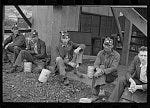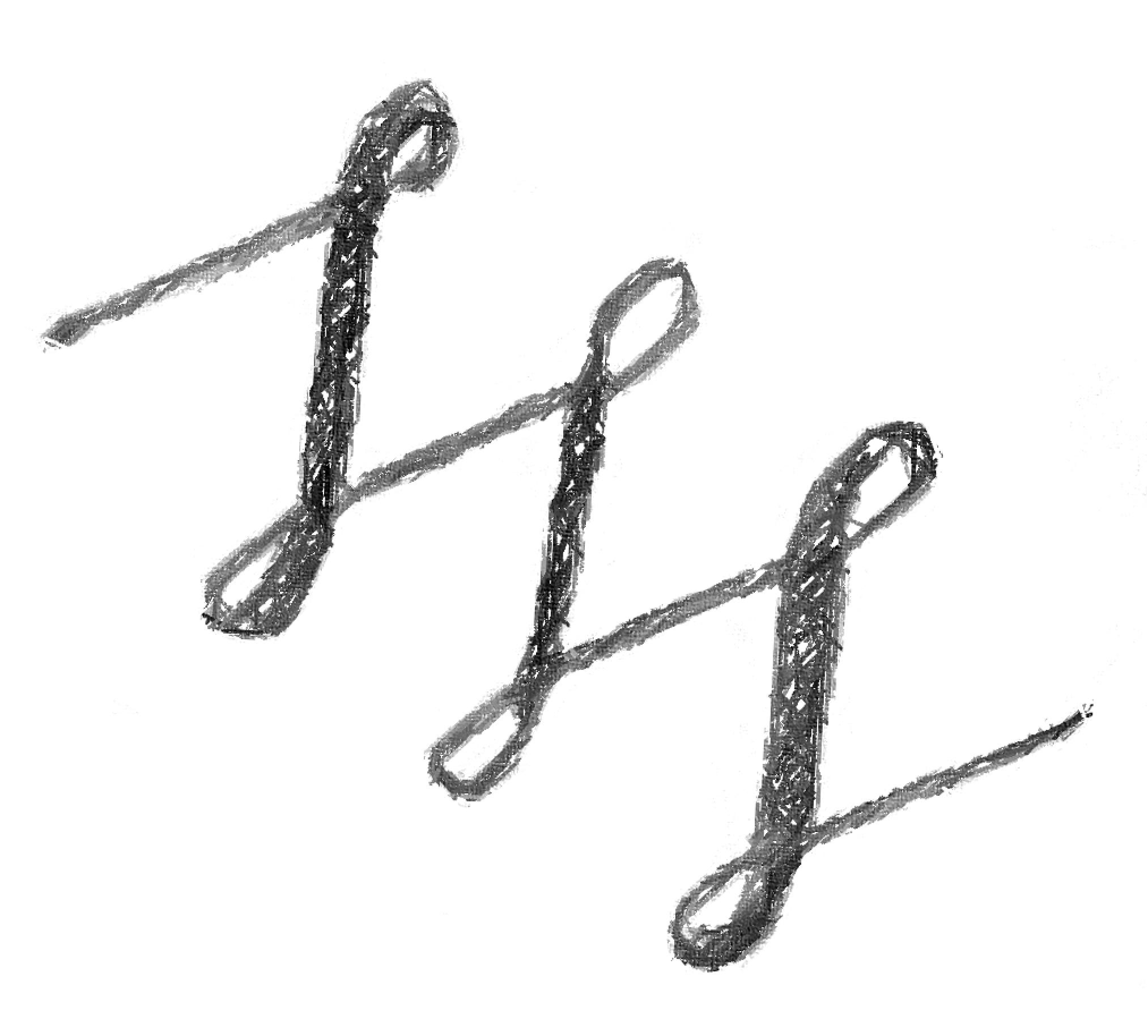Hi all,
Thank you for joining me for today’s song, “Union Maid”, by Woody Guthrie. If you’d like to hear the song before you read the background, I’ve included a YouTube video below the article.
Below, you’ll find my interpretation of the lyrics (written in italics). Comments and questions are welcome. For Japanese students, vocabulary words in bold are provided in Japanese below. TOEFL (PBT) 450+, Eiken 2, CEFR B1.
The Song
(770 words)
For several years now, I’ve been teaching a course called Songs of Social Significance. The students learn about songs that deal with social issues in history. Every once in a while, a song grabs hold of a student. This one sure did.
One of the themes we discuss is unions in the U.S., and one of the songs is Union Maid by Woody Guthrie (1). Woody Guthrie was a very important part of the American folk music genre. He wrote many songs in support of unions in the 1930s and 1940s. He was a member of the Almanac Singers, a folk group that toured the U.S., singing songs that promoted unions and songs that were against war and racism.
Union maid/Union made
In this song, Guthrie writes from the viewpoint of a union maid, a young female union member. It is also a play on words for union made, in other words, a product made by union workers. Many of these women worked in dangerous conditions in textile mills, factories that made fabric to be used for clothing, for example. A worker received little pay and could be fired just because the section manager didn’t like her. In order to change the situation, the women got together and joined the union. There is strength in numbers, so they were better able to talk with the company owners to improve wages and working conditions.
The company, however, didn’t want to make changes because that would mean less profit for them and their shareholders. Sometimes, the company would hire men to scare or threaten the women. They were called goons or ginks. The company fink, a stool, or a spy was a worker who would tell the bosses about the plans of the union members.
Union members threatened by police
There were police, deputy sheriffs, who were called in to hassle people standing outside a factory when the union members were on strike. I wasn’t able to find how the sheriffs were related to made the raid. According to Wikipedia, a “union raid” is when a new group of workers wants to become the leaders of a union that’s already there. They take over through an election. Perhaps the sheriffs protected those who wanted to take over the union?
And when the Legion boys come 'round, she always stood her ground
The “Legion” boys refers to members of the American Legion, a group of veterans that formed just after World War I. Many of the union members had opposed the war, so the two groups weren’t friendly to each other. In fact, they often fought. But this young woman stood her ground. To “stand your ground” means to not run away if someone tries to attack you.
Sometimes when unions went on strike, if the company owner had connections, he would ask the governor to send the National Guard (2) to come and help put down (stop) the strike. The union maid showed her card, a card that proved she was a member of the union, and this is what she'd say:
Chorus
Oh, you can't scare me, I'm sticking to the union
I'm sticking to the union, I'm sticking to the union
Oh, you can't scare me, I'm sticking to the union
I'm sticking to the union 'til the day I die
The last verse says that women benefit if their husbands are in the union. It encourages women to join the ladies’ auxiliary, which was a group of women who also worked for social justice issues like peace, childcare and health.
You gals who want to be free, just take a tip from me
Get you a man who's a union man and join the ladies' auxiliary
Married life ain't hard when you got a union card
A union man has a happy life when he's got a union wife
About one hundred years ago, American society was quite different, and women did not have the rights and opportunities that they have today. This last verse was updated by the UK songwriter and activist Billy Bragg (and perhaps others?) to make it more current:
You women who want to be free, just take a tip from me
Join your hand with a union man into the 21st century
As Angela Davis found, we’re all together bound
Let race and class and gender join to stand our common ground
Angela Davis is a scholar and activist known for fighting against racism and injustice. She played a key role in civil rights movements, advocating for equality and social change.
…
And my student? Whenever I saw her in the halls at the university, she would start singing the chorus of the song!
Question
Listen to the song a couple of times. Like my student, does this song grab hold of you?
From https://www.zinnedproject.org/materials/union-maid-song:
I’m proud to say I was present when ‘Union Maid’ was written in June, 1940. - Pete Seeger

VOCABULARY
(a song) grabs hold of you はまる
shareholder 株主
threaten 脅かす
hassle 苛む
veteran 在郷軍人
bound (past tense of bind) 結合する
advocate (for) を擁護する
This is a performance at Pete Seeger's 90th Birthday Concert in 2009. Billy Bragg, Mike & Ruthy Merenda, Dar Williams, New York City Labor Chorus. (At the end of the song, the musicians take out and show their union cards. They are members of the musicians’ union!)
Anne Feeney had another set of lyrics. You can find them at:
https://genius.com/Anne-feeney-union-maid-lyrics
Another version: Found at http://politicalfolkmusic.org/blog/woody-guthrie/union-maid/
A woman’s struggle is hard
Even with a union card
She’s got to stand on her own two feet
And not be a servant of a male elite
It’s time to take a stand
Keep working hand in hand
There is a job that’s got to be done
And a fight that’s got to be won
Notes
(1) The melody was based on an earlier song called Red Wing by Kerry Mills.
(2) The National Guard is like a military force that usually works inside the United States but could be sent abroad if necessary.
SOURCES
Garneau, M. (2020, January 2). Women’s Auxiliaries: An early example of whole worker organizing. Organizing.work. https://organizing.work/2019/09/womens-auxiliaries-an-early-example-of-whole-worker-organizing/. Accessed 2 Dec 2023.
How the IWW grew after the Centralia tragedy. JSTOR Daily. https://daily.jstor.org/how-the-iww-grew-after-the-centralia-tragedy/. Accessed 2 Dec 2023.
Klein, J. (1980). Woody Guthrie: A life. Ballantine Books.
Other songs about unions:
Look for the Union Label
Today’s song is "Look for the Union Label", lyrics by Paula Green, music by Malcolm Dodds.
Aunt Molly Jackson's "I am a Union Woman"
"I am a Union Woman" was written by Aunt Molly Jackson in 1931 - at least the lyrics were. The music comes from an old Baptist hymn.
Aunt Molly Jackson was born and grew up in Kentucky. She was an active member of the miners’ union in the 1930s. She had a guitar, and she wrote songs about the lives of the miners and their families.









Wow. What a fine post, with some fascinating background about a wonderful song.
May I add some minor color commentary about the song's origins (maybe just because I'm a pedant, but I'd also like to think some readers of this thread may be interested)?
Once, after a concert, Woody Guthrie was "accosted" by a woman in the audience, who respectfully challenged him about why his union songs were only about men and not about women "who are working just as hard as some of these guys." Woody went home and, that night, sitting around with Pete Seeger and others, wrote Union Maid.
This is the story, as told by Woody's son, Arlo: https://youtu.be/Ni6-ditmXZo?si=VkK49sOc_wcdlsrK&t=98 👀 If you enjoy Arlo, watch through his rendition of Union Maid for his follow-up story about the genesis of Woody's song, The Ladies' Auxiliary (It's a Good Auxiliary). 😂
Excellent post. I grew up listening to this song by the Strawbs, which is uncannily similar in parts to the Guthrie song https://en.m.wikipedia.org/wiki/Part_of_the_Union